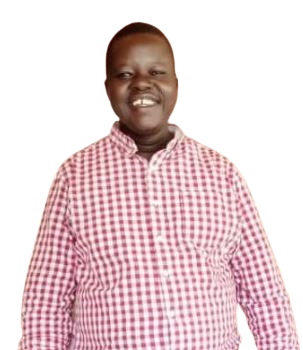
Mr.Bidokober Simon
The Justice, Peace and Human Rights Commission- Arua Diocese (JPHRC)is a faith based organisation established in 2001 and operates under the general guidance and strategy of the overall National Justice and Peace Commission strategic plan of nationwide peace building. The commission was mandated to promote and foster the following:
1. Human rights
2. Empowerment of the vulnerable
3. Democratisation and Constitutionalism
4. Accountability and transparency
5. Alternative Dispute Resolution (ADR).
PHRC operates within Arua Diocese, covering the six (6) political districts of: Arua, Moyo, Adjumani, Yumbe, Koboko, and Maracha/Terago. In total this covers a total of thirty nine (39) parishes with a population of over 2 million. Due to the broad scope of the national strategic plan, the JPHRC has developed its own strategic plan tailored to meet the unique needs of the West Nile Region which corresponds to the overall goal of the national agenda. This strategic plan focuses on building and consolidating its core strength and outreach capacity to grassroots agencies throughout the diocese. The JPHRC understands that only when there has been a change in values and increased access to information and skills that sustainable peace can be achieved. Knowledge is power and the JPHRC roots itself firmly in this belief.
To promote and foster justice, peace and human development within and amongst the communities of the West-Nile region.
To have a peaceful and reconciled society in the West-Nile region of Arua Diocese
To contribute towards a shift in society from a war-torn and scattered social fabric to a harmonious and peaceful living entity of the West Nile
What We Do:
The JPHRC has a long and successful history of Peace-building and Reconciliation activities in the West Nile Region. The organization has recognized the untapped resource that is community participation. As part of the process of building a vibrant and empowered civil society at a parish, district and regional level, we at the JPHRC have worked to develop and maintain civil society forums for the discussion of and active participation in, governance issues.
1. Projects
JPHRC has successfully implemented the following projects over the past ten (10) years: Danida HUGGO (2006-2010)- Human Rights and Good Governance Program; Met een Missie (MM ¬) (2008-2015)- Campaign against Domestic violence in the families and the community; Catholic Relief Service (CRS) (2004)- Open forum discussion and reconciliation program for Ex-combatants of West Nile Bank Front with victims; German Technical Cooperation (GTZ/ GOPA) (2008)- Peace building training of refugees’ camp commanders in nonviolent conflict management; Uganda Joint Christian Council (2008)- Campaign against the proliferation and illicit trafficking of small arms and weapon in Arua Yumbe, and Koboko; Uganda Human Rights Network (HURIENT) (2004)- Capacity building on human rights for local authorities; Miser or Aachen (2011)- Sensitization of Sudanese refugees on peaceful and non- violent referendum process, through radio talk show; Association for Development cooperation Germany (AGEH) (2009-2012)- Providing Consultancy work on peace building
2. Advocacy
Since its inception JPHRC has been involved in different levels of advocacy amongst communities of the West- Nile region. JPHRC successfully led a campaign against small/light arm weaponry in the districts of Arua, Yumbe and Koboko which led to voluntarily return of guns to the Ugandan police force and Parish priests in 2009 (Uganda Joint Christian Council: 2008).In 2011 JPHRC also conducted a sensitization program which targeted Sudanese Diaspora in West Nile for Peaceful Referendum processes (Missioachen: 2011). Currently the JPHRC is pursuing a sensitization campaign for the prevention of domestic violence in Ugandan society(MM: 2008-2015). This project entails practical training in mediation skills to JPHRC Parish Peace Committees, family life coordinators and school Peace Clubs members. Through this project the JPHRC has become more involved in current issues of land dispute as voiced by community members. Thus the project has incorporated land dispute management as an additionally aspect of the sensitization program. In doing so the JPHRC has initiated the documentation of land conflict disputes in Arua District and been an implementing partner in mediation interventions for disputing communities.
3. JPHRC Sustainability:
The creation of community platforms, known as Parish Peace Committees has been to date the greatest achievement of the JPHCR in terms of sustainability and social empowerment. At these forums, community members are encouraged to share their perspectives on peace, governance and human rights concerns , and more importantly , be facilitated to understand that it is their responsibility to influence processes that will lead to solutions of these concerns. The forums also give opportunity for the communities to directly interact with their leaders. Initially co-organised by the JPHRC secretariat, such forums now function independently. However follow up support by the JPHCR is provided in the form of monitoring visits, planning and implementation of joint activities, as well as yearly training workshops in practical peace building skills.
JPHRC is a membership organisation; and it is from this membership that the Board of Directors (BOD) is elected every three years. JPHRC has seven BOD members, who are grass root leaders, trained in peace and conflict management. The secretariat of JPHRC include: the Executive Director, Finance and Administrator; Project Officer; and a Peace and Reconciliation consultant. In addition, JPHRC is pursuing a strategy of reinforcing its capacity with the inclusion of volunteers from different parts of the world.
Simon Bidokober
Tel: +256(0)779912376-
Director JPC Arua Diocese
Email: s.bidokober@gmail.com
Email: justice.peace.director@dioceseofarua.org